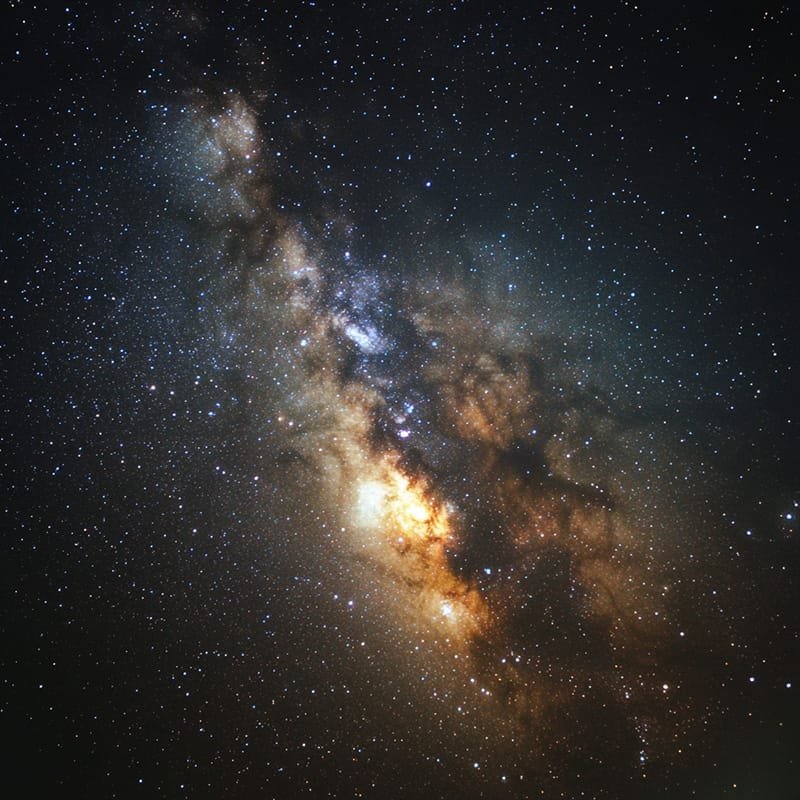The concept of the multiverse has gained significant attention in recent years, particularly within the field of theoretical physics. The multiverse theory suggests that our universe is just one of many universes that exist parallel to each other. These universes may have different physical laws, constants, and even dimensions. While the idea of multiple universes may seem far-fetched, it is rooted in scientific theories such as inflationary cosmology and string theory.
Inflationary cosmology proposes that the universe underwent a rapid expansion shortly after the Big Bang, resulting in the creation of multiple universes. This theory helps explain certain observations, such as the uniformity of the cosmic microwave background radiation. String theory, on the other hand, suggests that there are multiple dimensions beyond the three spatial dimensions we are familiar with. These extra dimensions could potentially house other universes.
Key Takeaways
- The concept of the multiverse is a theoretical physics idea that suggests the existence of multiple universes beyond our own.
- Scientific observation has limitations that make it difficult to gather empirical evidence for the existence of multiple universes.
- Despite the lack of empirical evidence, the anthropic principle and fine-tuning of the universe suggest the possibility of a multiverse.
- Defining and testing the multiverse hypothesis is a significant challenge due to the problem of infinite regress and the question of causality.
- The role of Occam’s razor in evaluating the multiverse theory is important, as is scientific skepticism in exploring the philosophical implications of the multiverse.
The limitations of scientific observation in studying the multiverse
One of the major challenges in studying the multiverse is the limitation of scientific observation. Since these parallel universes are hypothesized to exist outside our own, it is currently impossible to directly observe or interact with them. This poses a significant obstacle for scientists who rely on empirical evidence to support their theories.
Furthermore, even if there were indirect evidence for the existence of other universes, it would be difficult to distinguish between different multiverse models. There are various proposals for how these parallel universes could be structured and how they interact with each other. Without direct observation or experimental verification, it becomes challenging to determine which model is correct.
The lack of empirical evidence for multiple universes
Despite the theoretical appeal of the multiverse hypothesis, there is currently a lack of empirical evidence to support its existence. While inflationary cosmology and string theory provide a theoretical framework for multiple universes, they do not offer concrete proof.
Some argue that the lack of evidence is not necessarily a reason to dismiss the multiverse theory. After all, there have been many instances in the history of science where theories were proposed before empirical evidence was available. However, it is important to recognize that the absence of evidence does weaken the case for the multiverse.
The anthropic principle and the fine-tuning of the universe
One of the arguments in favor of the multiverse theory is known as the anthropic principle. This principle suggests that our universe appears to be finely tuned for the existence of life because if it were not, we would not be here to observe it. In other words, the physical constants and laws of our universe are just right to allow for the emergence of intelligent life.
Proponents of the multiverse argue that if there are multiple universes with different physical laws and constants, it is not surprising that we find ourselves in a universe that is conducive to life. They suggest that our universe is just one of many possible outcomes, and it is not surprising that we find ourselves in one that supports life.
The problem of infinite regress in the multiverse hypothesis
One of the challenges with the multiverse hypothesis is the problem of infinite regress. If there are multiple universes, each with its own set of physical laws and constants, then what explains the existence and properties of these universes? Does each universe have its own set of laws and constants, or is there some underlying mechanism that determines them?
This problem leads to an infinite regress, where each universe requires an explanation for its existence, which in turn requires an explanation for its own existence, and so on. This raises questions about causality and whether there can be an ultimate explanation for the existence and properties of all universes.
The challenge of defining and testing the multiverse hypothesis

Defining and testing the multiverse hypothesis presents a significant challenge for scientists. Since these parallel universes are hypothesized to exist outside our own, it is difficult to come up with a precise definition of what constitutes a universe and how they interact with each other.
Additionally, testing the multiverse hypothesis is currently beyond the capabilities of our technology. As mentioned earlier, direct observation or interaction with other universes is not possible at this time. This means that scientists must rely on indirect evidence or theoretical predictions to support the multiverse theory.
The question of causality and the multiverse
The concept of causality poses another challenge for the multiverse hypothesis. Causality is the idea that events have causes and effects, and it is a fundamental principle in science. However, in a multiverse scenario where there are multiple universes with different physical laws and constants, it becomes difficult to determine what causes what.
If each universe has its own set of laws and constants, then it is unclear how these universes interact with each other and whether there is any causal relationship between them. This raises questions about the nature of causality in a multiverse scenario and whether it can be reconciled with our current understanding of physics.
The role of Occam’s razor in evaluating the multiverse theory
Occam’s razor is a principle in philosophy that suggests that the simplest explanation is usually the best one. When evaluating the multiverse theory, Occam’s razor raises questions about whether it is necessary to postulate the existence of multiple universes to explain certain phenomena.
Some argue that the multiverse theory is an unnecessary complication, as it introduces additional entities (e., other universes) without providing a clear explanation for their existence or properties. They suggest that simpler explanations, such as variations in initial conditions or physical laws within our own universe, may be sufficient to explain the observations that are often used to support the multiverse theory.
The philosophical implications of the multiverse
The concept of the multiverse has significant philosophical implications. It challenges our understanding of the nature of reality and raises questions about the uniqueness of our own universe. If there are multiple universes, each with its own set of physical laws and constants, then it suggests that our universe is not special or unique.
This idea can be unsettling for some, as it challenges our intuitive sense of the world and our place in it. It raises questions about the meaning and purpose of life, as well as the existence of other intelligent beings in the universe.
The importance of scientific skepticism in exploring the possibility of a multiverse
Given the limitations and challenges associated with studying the multiverse, it is important to approach the topic with scientific skepticism. While the multiverse theory is an intriguing concept, it is still a hypothesis that requires further investigation and empirical evidence.
Scientists must remain open to alternative explanations and continue to explore other avenues within theoretical physics. This skepticism ensures that scientific inquiry remains grounded in evidence and avoids unfounded speculation.
In conclusion, the concept of the multiverse in theoretical physics has gained attention in recent years. However, there are limitations to studying the multiverse due to the lack of empirical evidence and challenges in defining and testing the hypothesis. The anthropic principle and the problem of infinite regress also pose challenges to the multiverse theory. Additionally, questions about causality and the role of Occam’s razor need to be addressed. The philosophical implications of the multiverse are significant, but scientific skepticism is crucial in exploring this possibility.
If you’re intrigued by the concept of the multiverse and want to explore more about its plausibility, you might find “The Universe Episodes” website to be a valuable resource. They offer a range of articles and insights on various topics related to the universe and its mysteries. In particular, their article titled “Why can’t the multiverse be real?” delves into the scientific theories and limitations surrounding the existence of multiple universes. To learn more, check out their website at https://theuniverseepisodes.com/about/.
FAQs
What is the multiverse theory?
The multiverse theory is the idea that there are multiple universes, each with its own set of physical laws and properties, existing alongside our own.
Why do some scientists believe in the multiverse theory?
Some scientists believe in the multiverse theory because it helps to explain certain phenomena that cannot be explained by our current understanding of the universe, such as the fine-tuning of physical constants.
Why can’t the multiverse be real?
The multiverse theory cannot be proven or disproven, as it is currently beyond the realm of scientific observation and experimentation. Additionally, the theory relies on a number of unproven assumptions and lacks empirical evidence.
What are some criticisms of the multiverse theory?
Critics of the multiverse theory argue that it is untestable and therefore unscientific, as well as being overly complex and lacking in empirical evidence. Some also argue that the theory is a form of pseudoscience, as it relies on unproven assumptions and cannot be falsified.
What are some alternative theories to the multiverse?
Alternative theories to the multiverse include the idea of a single, self-contained universe with no other parallel universes, as well as the idea of a cyclic universe that goes through repeated cycles of expansion and contraction. Some scientists also propose the idea of a “many-worlds” interpretation of quantum mechanics, which suggests that every possible outcome of a quantum event actually occurs in a separate universe.
–
My Thoughts on the Multiverse Theory
I find the concept of the multiverse theory fascinating as it challenges our perception of the universe and raises intriguing questions about the nature of reality. Despite its theoretical appeal, the lack of empirical evidence and the complex challenges associated with defining and testing the hypothesis make it a thought-provoking subject for further exploration.
Benefits of Reading this Article
Reading this article provides a comprehensive overview of the multiverse theory, highlighting key takeaways, limitations in scientific observation, philosophical implications, and challenges in testing the hypothesis. It offers valuable insights into the complexities surrounding the concept of multiple universes and encourages critical thinking about our understanding of the cosmos.
Main Message of this Article
The main message of this article is to shed light on the concept of the multiverse theory in theoretical physics. It emphasizes the theoretical nature of the idea, the challenges posed by the lack of empirical evidence, and the importance of scientific skepticism in exploring such complex theories. The article aims to provoke curiosity and encourage a deeper exploration of the possibilities and limitations of the multiverse hypothesis.
–
























